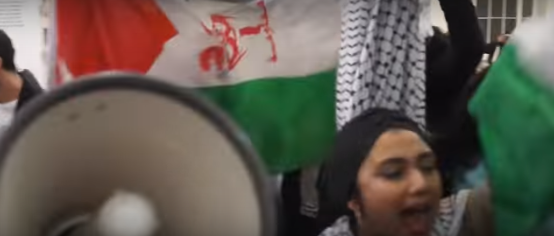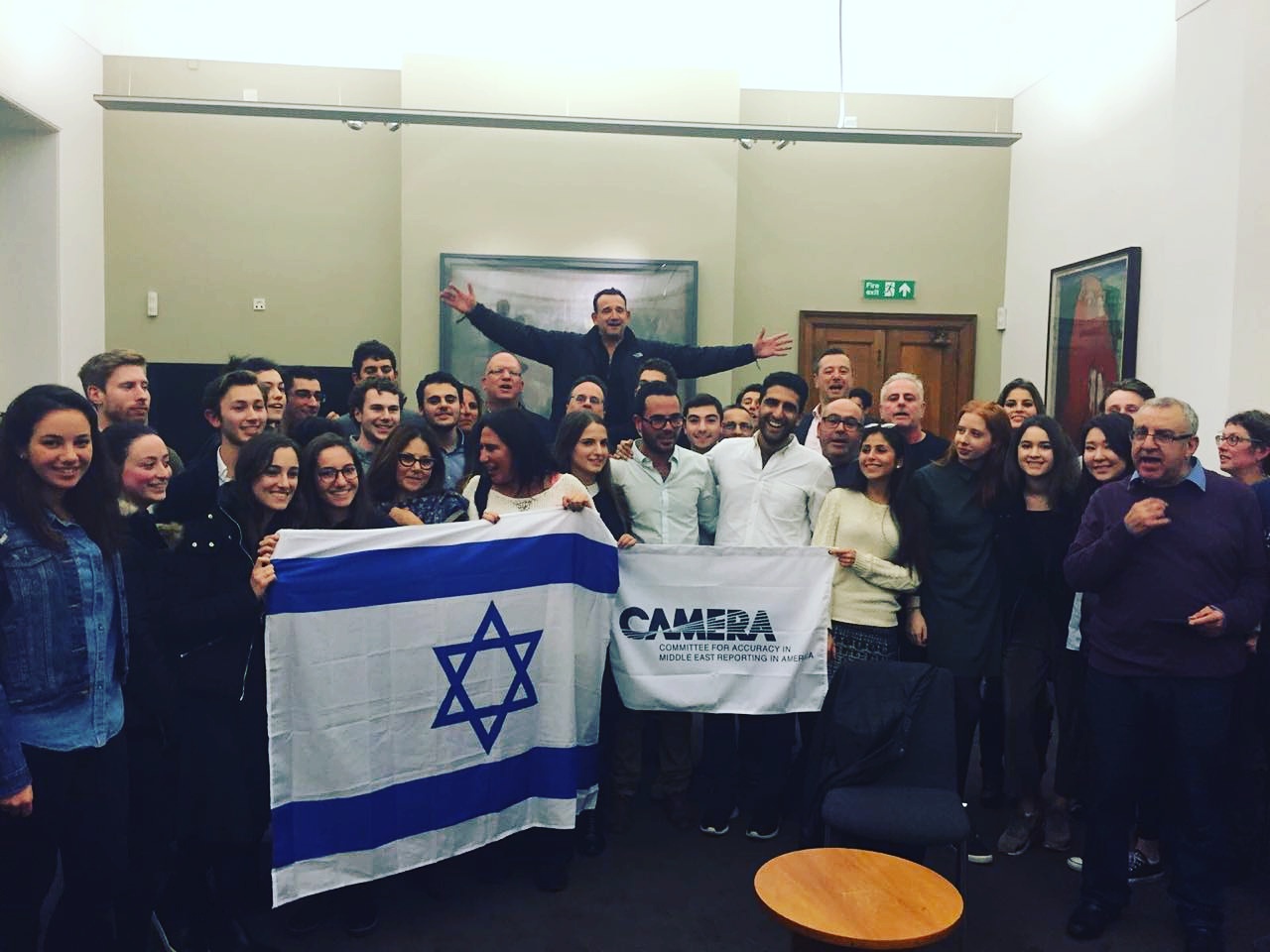Campus security officers barricaded the doors. The mob swarmed in on us. We were caged in a room at University College London (UCL). Crowds of scowling faces were pressed against the window, pointing, jeering, roaring hateful words — their cameras flashing all around us. It was like we were in a zoo. Ironically, this time, the animals were on the outside.

We sat in a circle, facing each other — in shock, speechless — and awaiting what would happen next.
We were trapped. Each window and door that surrounded us was blocked by a separate mob of violent protestors, chanting, banging and pushing.
What is one supposed to do in such a situation?
The rational thought in times of danger is to escape and run away. This time, however, the danger was on the outside, and safety was the circle we were sitting in.
Our time? We had come to hear Israeli speaker Hen Mazzig, who had been brought to UCL by CAMERA on Campus with approval from the student union.

It was clear that UCL’s violent mob was determined to shut down the event, and deny us our rights to assemble and speak. But we didn’t back down. This was more than just another University talk. It was about civil rights — our civil rights.
Security officials changed the location of the event — twice.
The protesters couldn’t be controlled in the previous rooms. And to make sure that the final room would not be flooded by the mob, we dispersed into groups around the university and then entered this new room separately, at different times, diverting attention away from us.
But this still was not enough.
Numerous students were harassed, shoved, slandered — all for simply attempting to attend a talk by a speaker approved and arranged through UCL’s student union.
No student should be concerned about safety at his or her university, let alone in a democracy. But at UCL, the walls of our “safe space” came crashing down.
As Mazzig prepared to speak, protesters rammed the window open and dived into our room, hitting two girls. After 10 minutes, these hijackers were escorted out; it was now time for him to speak.
In our solidarity circle, we gave him our full attention as he talked about his background and connection to Israel. And when he finished, we realized that our goal had been accomplished: we hadn’t let intolerance and hate deprive us of our rights.
Still shaken up by the events, we tightened our circle and began singing Hatikvah, the Israeli national anthem. Our tears soon turned to smiles.
Yes, we were outnumbered, and hatred swirled around us. But there was an almost transcendent spirit of strength that seemed to penetrate us.
After the event was over, a policeman warned us that exiting wouldn’t be easy. The crowds were still thick and angry.
Security cleared a path through the mob for us to leave. Abuse hailed down on us. Insults and curses were hurled. But, as we walked hand-in-hand through the hateful crowd, our fear had somehow dissipated. We walked straight out of the event, in a civil manner, without causing any commotion or disruption. We were the antithesis of the violent mob.
It turns out that the psalmist was correct: it’s possible to walk through a dark valley and yet feel no fear.
Contributed by Kings College London CAMERA Fellow Joelle Reid.
This article was originally published on The Algemeiner.

